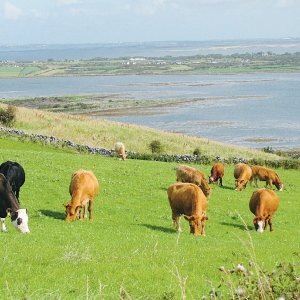Incoming Chinese president Xi Jingping and Irish Taoiseach (Prime Minister) Enda Kenny discussed the process needed to re-open the Chinese market to Irish beef during a meeting in Beijing.
"This is obviously a scientific process that has to be done in order to comply with very stringent requirements," Kenny told reporters after the meeting. "Everybody understands this.
"The (Chinese) premier has instructed scientific officials to begin this process and we look forward to following through with that. It is very good news indeed, but there's a very long way to go on this."
Exports are important to Ireland's 60,000 cattle farmers and China is the third-largest beef consumer and producer in the world.
China became a net importer of beef for the first time in 2010 with 23,700t imported and 22,100t exported. That gap ballooned last year, with 33,900t imported and 17,700t exported.
China banned Ireland's beef shortly after it's first BSE case was confirmed in 1989.
Incidence has been falling since 2002 when 333 animals were confirmed with the disease. By 2009, only nine cases were detected with two in 2010 and three last year.
Ireland exports about 90% of its beef production, with 96% of exports going to other European Union countries. The UK accounts for almost half, taking 235,000t valued at €810 million.
Ireland is one of three countries, with the UK and the Netherlands, named by the U.S. Department of Agriculture as having a status that could quickly allow them to begin exporting beef to the US when a proposal to end a ban there is approved.

















